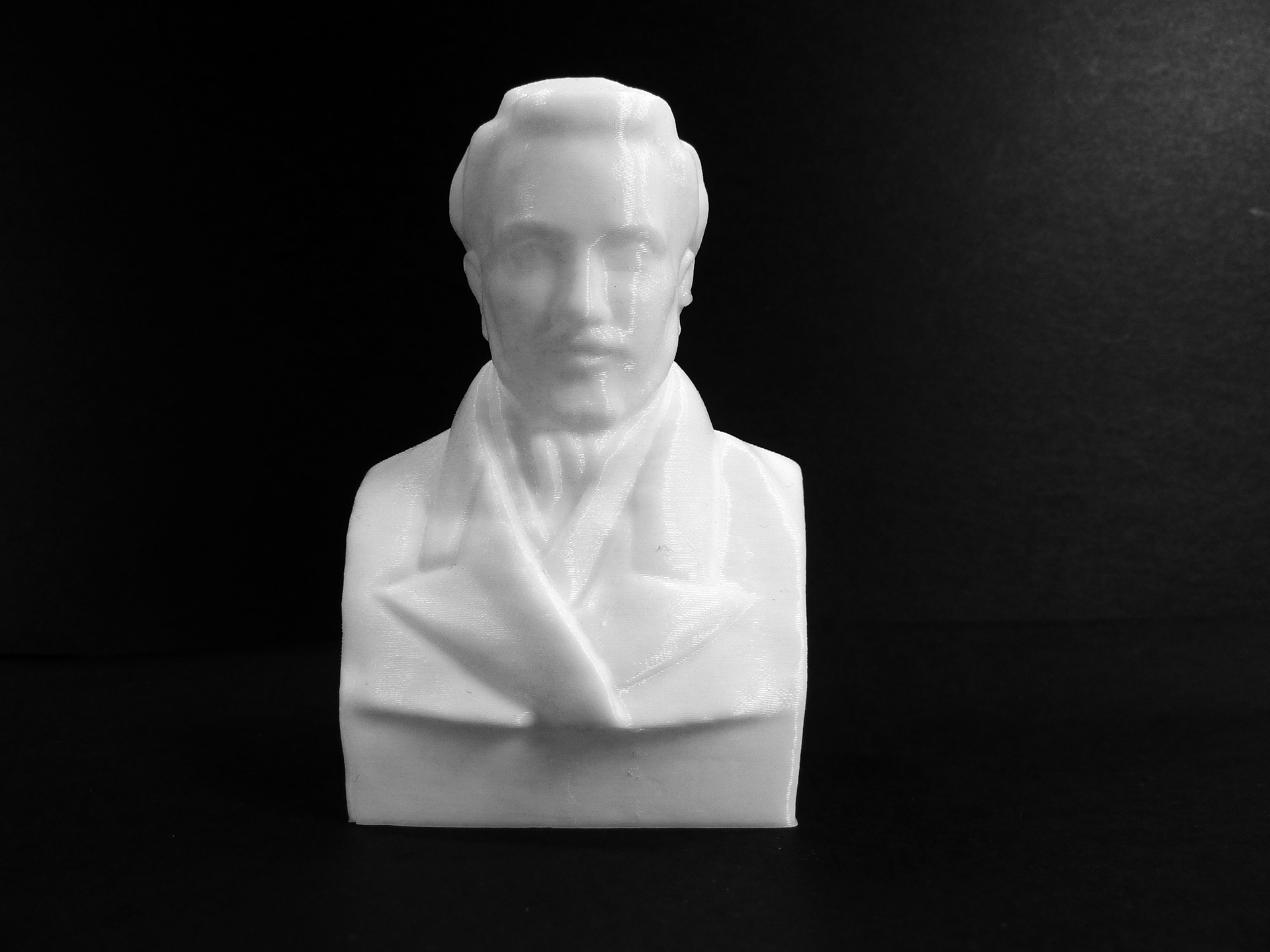
Giuseppe Giusti at The Borghese Gardens, Rome
myminifactory
Giuseppe Giusti (May 12, 1809 – May 31, 1850) was an Italian poet and satirist. In 1834, Giusti, having finally earned his law degree, left Pisa to go to Florence, supposedly to practice with the advocate Capoquadri, but once there, he set out to enjoy life in Tuscany's then-capital of Italy, where he devoted himself to literary interests. He fell deeply in love a second time. As before, he was abandoned by his lover. It was then that he wrote his most brilliant verses. Although his poetry was not yet collected in a single volume, for several years it circulated from hand to hand, as was often the custom, and his name gradually became famous. The majority of his poems were published clandestinely at Lugano, at considerable risk, since the work was destined to undermine Austrian rule in Italy. After publishing a collection of verses in Bastia, Giusti solidified his fame with Gingillino, the best poem in both moral tone and effectiveness among all his works. The poet set out to portray the corruption of treasury officials and the base means they used to conceal the state's necessities. Gingillino has all the characteristics of a classic satire. When first released in Tuscany, it shocked everyone as too passionate and personal. Giusti wholeheartedly participated in the political movements of 1847 and 1848, served in the national guard, and sat in the parliament for Tuscany; but finding that there was more talk than action, that the tyranny of princes had given way to the tyranny of demagogues, he began to fear, and express his fear, that Italy had suffered evil rather than good. He fell from the high position he had held in public esteem, and in 1848 was regarded as a reactionary. His friendship for Marquis Gino Capponi, who had taken him under his wing during the last years of his life, and who published a volume of illustrated proverbs after Giusti's death, was enough to compromise him in the eyes of men like Guerrazzi, Montanelli, and Niccolini. On May 31, 1850, he died at Florence in the palace of his friend. This object is part of "Scan The World". Scan The World is a non-profit initiative introduced by MyMiniFactory, through which we are creating a digital archive of fully printable sculptures, artworks, and landmarks from around the world for everyone to access for free. Scan The World is an open-source community effort; if you have interesting items nearby and want to contribute, email stw@myminifactory.com to learn how you can help. Scanned: Photogrammetry (Processed using Agisoft PhotoScan)
With this file you will be able to print Giuseppe Giusti at The Borghese Gardens, Rome with your 3D printer. Click on the button and save the file on your computer to work, edit or customize your design. You can also find more 3D designs for printers on Giuseppe Giusti at The Borghese Gardens, Rome.
